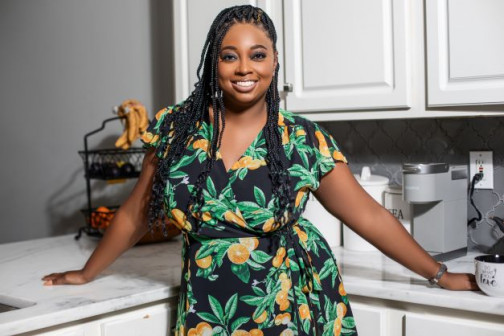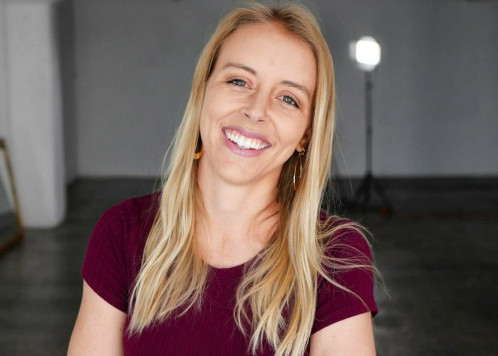With the chaos of COVID-19, we’ve heard from stressed-out folks who want to do something positive and proactive to take back some sense of control by organizing the things we don’t necessarily want to think about all the time. For example: healthcare docs, wills and estate planning. There’s naturally (and unfortunately) an increased awareness about the need for end of life planning, so our editors called up James Hyer, an attorney practicing in New York who specializes in estate planning and all the associated aspects such as wills, healthcare proxies, and such. Here’s his take on what you should do right now to be organized and protected in the light of the coronavirus crisis.
Farewelling: Are you seeing any uptick in people wanting to plan for their healthcare documents such as living wills, wills and trusts or other essential end of life needs as a result of the coronavirus pandemic?
James Hyer: For the past two weeks my firm has experienced a significant increase in calls for people seeking assistance with their estate planning needs, including clients we have spoken to in the past about estate planning but who never followed through to engage in the planning process, and new clients who, due to the pandemic see a clear need to protect their loved ones by having an estate plan in place. They’re eager to establish a plan including advanced directives indicating how their lifetime medical and financial decisions will be made in the event they become sick and incapacitated, as well as how their assets will be distributed if they pass.
F: Have you had to deal with any coronavirus-related issues in your estate planning practice yet?
JH: We have unfortunately had several new clients call as they have had loved ones pass and are seeking legal counsel for estate administration, and many are contacting us to draft estate planning packages. Estate planning done well will incorporate many issues that the person is dealing with in their life (i.e., business ownership, divorce, loss of employment, etc.). As our firm is multi-practice, I believe we are in a better position than many to ensure that the estate planning packages we prepare are comprehensive and provide a sophisticated approach to each individual’s needs.
F: If someone told you, "This whole pandemic is making me want to get my s*** together,” what are the first three things you would tell them to do?
JH: Well, I would agree that the pandemic is a cause for alarm and that they should immediately:
1) Review their entire financial picture including their assets, debts, liabilities, expenses, and insurance policies (disability, life, catastrophic care, etc.), with attention to what assets will pass by operation of law at their death (i.e., financial accounts with beneficiary designations) and those which will pass through their estate as probate assets, and how their death will financially impact those who they love, especially those who may depend upon them for their financial well-being;
2) Examine the estate planning they have in place now, if any, to determine if that estate plan meets their individual needs, paying close attention to: (a) Health Care Proxies, (b) Powers of Attorney, (c) Living Wills and Do Not Resuscitate Orders, (d) Last Wills and Testaments, (e) Codicils, (f) Trusts, and (g) Beneficiary Designations on Financial Accounts, Retirement Plans and other Financial Vehicles; and
3) Develop an estate plan that meets their individual needs putting in place lifetime advance directives naming agents they trust to make their financial and medical decisions, while establishing a post-death estate plan which will designate agents empowered to administer their estate in a manner to best protect the ones they love.
Read more about the Top 5 Healthcare Docs You Need to Fill Out and Why
F: People think making a will is just for rich people with homes, cars, stocks. Why should everyone have a will?
JH: If a person dies without a will they lose the ability to choose their executor and to specify who will receive their assets. In this case, the court will appoint an administrator and the statute will determine who will receive assets through what is referred to as “intestate succession.” In such a situation the law takes the position that the person who has died would have wanted both their closest living relative to serve as their estate administrator and their closest living relatives to receive their assets. For many individuals, the law of intestate succession does not reflect what they would have wanted as to who should handle the affairs of their estate or as to how they would like their estate assets distributed. On the contrary, many people want to leave specific items to certain individuals, cash amounts to charities or houses of worship, and to have the remainder of their estate go to others than their closest living relatives. With no will, the person, after death, no longer has the right to assert these important last major choices.
Finally, while many people question why they need a will if they are not “rich,” it is important to remember that estate planning should be prepared to take into consideration not just the assets that they currently have, but what they may have in the future. That includes inheritance from others, claims in medical malpractice that may cause their death, or claims in personal injury such as a car accident that may cause their death. Also, wills are vitally important for those who have minor children, as a will offers the opportunity to designate a guardian for any minor children and to establish a Testamentary Trust where a designated trustee may manage any funds left to the minor children until they reach adulthood, rather than having a court make these decisions.
How to Write a Will in 3 Easy Steps
F: When it comes to healthcare docs in case of a personal medical emergency, which one(s) do you think are most important and why?
JH: We usually prepare at a minimum two documents for our clients that work in concert with each other. They concern medical decisions and how they are to be made in the event he or she is incapacitated to the extent that they cannot make their own medical decisions.
The first document is called a Health Care Proxy and designates a health care agent who is empowered to both make medical decisions for the client and to gain access to the client’s medical records. It is important to note that the Health Care Proxy further permits the client to direct if they will be an organ and/or tissue donor, and to the extent that they choose to do so, if they will place any limitations on the donation provided (i.e.: transplant purposes only, etc.).
The second document is called a Living Will Declaration and this document provides instruction to the client’s health care agent, medical providers and any medical facilities, about how the client would like their end of life decisions to be made, such as the circumstances when life-sustaining treatments are to be withheld and medicine is to be provided which may shorten the client’s life but also serve to reduce discomfort. We often will “annex” or add the Living Will Declaration to the Health Care Proxy to ensure that they are read together as one document. We make our clients aware of how important it is that these documents are drafted carefully, as they will likely be scrutinized by “ethics committees” of medical facilities such as hospitals when a health care agent seeks to engage in decision making, specifically when making end of life decisions.
How to Choose a Healthcare Proxy
F: Can you put a positive spin on why folks should take steps to plan for themselves during this stressful time of coronavirus? Why should they stop binge-watching Schitt's Creek and think about serious matters? Why is it good (rather than "don't be a burden," etc)? Can it empower them to live life with more confidence now?
JH: While it may be easy to fall into a state of despair when watching the news reports that the pandemic is spreading, it is vitally important that we not feel powerless to protect our families and those who we love. We can take steps through estate planning to ensure that if we become sick or die, that they are afforded the best protection available. Even before this health crisis, I have always told my clients that preparing an estate plan is the most important thing that you can do for the people you care about. In light of the pandemic, it’s fair to say that not having an estate plan is reckless.
Well, that was a lot. But we here at Farewelling believe that knowledge is power, and action can bring comfort. We’ve made a free downloadable PDF of our Farewelling Worksheet if you’d like to check that off your list of amazing things to do while you’re social distancing and staying at home and being amazing. Put on a cool Yacht Rock Playlist and git ‘er done! Write us an email at info@myfarewelling.com and we’ll send you a Farewelling collector’s edition magnet!
James Hyer, Esq., is an attorney admitted to practice in the State of New York and is a partner in a firm which has practice areas including estate and business planning, estate administration, litigation and transactional matters. James is a recognized leader in the legal community as the President Elect of the Westchester Bar Association, and a past member of the NYS Bar Association House of Delegates. He is the recipient of the Leading Attorney Under 40 award from Pace Law School. For more information call (914) 946-5100, visit the Bashian Law website or like the Bashian Law page on Facebook.
Recommended Memorial Products
- How to Go on Living When Someone You Love Dies — Practical guidance for navigating life after a significant loss.
- The Gift of Second — Finding hope and new beginnings
- Water Bugs and Dragonflies — A gentle story about life transitions


-banner.png)






